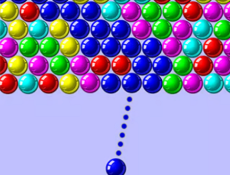

Arcade games form one of the most recognizable categories in the history of interactive entertainment. Originating in public arcade cabinets, they emphasize direct action, clear objectives, and short play sessions. Even though the medium has evolved to digital platforms, the defining characteristics of arcade design remain relevant, providing fast challenges that can be repeated and mastered.
Core Elements
The foundation of arcade games lies in accessibility and repetition. Controls are simple, usually allowing quick reactions without complex instructions. The structure favors immediate entry into play, with players competing against timers, scores, or waves of challenges. This design makes them suitable for short sessions while also encouraging repeated attempts to improve performance.
Subcategories And Styles
Arcade games span across multiple genres, but they share a focus on action and progression through skill. Some emphasize reflexes, while others highlight timing or precision. Despite their variety, all keep the player engaged through escalating difficulty.
Main subcategories include:
- Classic shooters where players eliminate waves of enemies
- Racing titles that test speed and reaction time
- Platformers built around jumps and movement precision
- Beat ’em ups centered on hand-to-hand combat
- Puzzle-arcade hybrids blending fast logic with quick play
Player Experience
The appeal of arcade games is closely tied to the sense of mastery. Because sessions are short, players quickly see the results of their actions. This immediate feedback loop encourages repetition and fosters improvement. The pursuit of a higher score or faster completion time adds competition, both individually and against others. Many modern versions also include online leaderboards, extending the classic idea of score comparison from arcade cabinets to global audiences.
Arcade games continue to remain relevant because they capture the essence of play: short, engaging sessions with clear goals. While technology has expanded their formats, from handheld devices to mobile phones and consoles, the principles have stayed consistent. They remind players that games do not always need complex systems or long campaigns to be rewarding. Instead, the challenge of quick reactions and incremental improvement ensures that arcade titles remain timeless in both form and function.
















